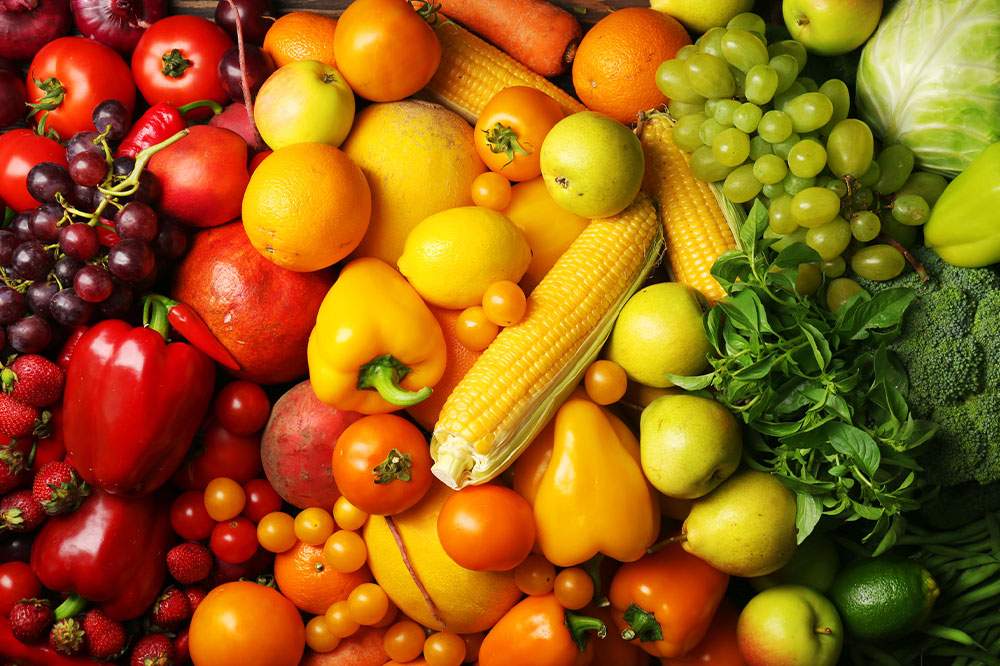Foods to Eat and Avoid for Managing Psoriasis

Psoriasis is a chronic autoimmune skin condition that affects approximately 2 to 3% of the world’s population. The symptoms of psoriasis include dry, cracked skin, colored patchy rashes, scaling spots, and itching or burning sensation. There is no cure for this condition, and all the treatments for psoriasis aim to improve the symptoms. Patients need to stick to a proper nutritional regime that includes eatables that help manage the symptoms and excludes the foods that can worsen the condition.
6 foods that can help manage psoriasis
Fruits and vegetables
Fruits and vegetables are rich in antioxidants. They protect a person’s body cells from the effects of free radicals. They contain lots of vitamins and minerals that help keep inflammation down. Foods like berries, grapes, tart cherries, broccoli, cauliflower, etc. are beneficial for managing psoriasis flare-up.
Fatty fish
Since fish like tuna, lake trout, cod, mackerel, and sardines are rich sources of omega-3, they can be consumed to keep psoriasis in check. However, it is seen that the intake of omega-3 is linked to a decrease in inflammatory substances and overall inflammation.
Heart-healthy oils
Consume olive oil and coconut oil, which are considered heart-healthy oils is considered healthy for managing the condition. Just like fatty fish, these oils also contain anti-inflammatory fatty acids. Therefore, one should focus on the category of oils that have a higher ratio of omega-3 to omega-6 fatty acids to reduce the symptoms of psoriasis.
Green leafy vegetables
Green leafy vegetables are low in calories and high in fiber. They are loaded with antioxidants, so they protect one’s cells against inflammation. This way, they may help with psoriasis symptoms.
Whole grains
Another food item that can be consumed to ease inflammation is whole grains. They are rich in fiber and can help in relieving psoriasis symptoms. Whole-grain cereals, bread, brown rice, and brown pasta are good options for regular consumption. One must always check the ingredients list on the packet before buying the product.
Beans
Beans are a good source of fiber, protein, and antioxidants. They help ease the inflammation in the body. As per studies, a vegetarian meal plan can help with psoriasis symptoms. One can try swapping this meal plan for meat once in a while.
6 foods to avoid for psoriasis
Processed foods
Processed food lack essential micronutrients and fibers but instead contain unhealthy fats, salt or sugar, and high calorie. Eating food items with low nutritional value will cause various diseases and chronic inflammation in the body. This can be linked to psoriasis flare-ups. So, those with psoriasis should avoid processed foods like packaged items, canned fruits and vegetables, and refined meat.
Dairy
Dairy products, including milk, cheese, and yogurt, contain a protein called casein, which has been linked to inflammation in the body. They are also known to increase the production of insulin-like growth factor-1 (IGF-1), which has been shown to contribute to the development of psoriasis. The protein casein, which has been connected to inflammation, is high in cow’s milk, so it is one of the main culprits.
Added sugar
Added sugars are present in soda, fruit juices, candy, baked goods, and other sweets. They are known to disrupt the gut microbiome, which is the community of microorganisms that live in our intestines. A healthy gut microbiome plays a crucial role in regulating the immune system and maintaining a person’s health, wherein disruptions to this delicate balance can trigger autoimmune conditions like psoriasis.
Nightshade plants
Due to its high levels of vitamins B and C, and antioxidants, the nightshade vegetable family, which includes tomatoes, peppers, potatoes, and eggplant, is frequently included in healthy meal plans. Yet, nightshades are a skin flare-up trigger for some psoriasis patients. Nightshade plants contain alkaloids, which are natural compounds with anti-inflammatory and immune-modulating effects.
Red meat
Red meat is abundant in arachidonic acid, a polyunsaturated fatty acid. Many studies have shown that the by-product of arachidonic acid may play a role in the development of psoriasis. Patients should avoid red meat like beef, sausage, and bacon.
Gluten
The protein gluten, which is present in wheat and some other grains, triggers an immune response that causes the body to attack the tissues in the small intestine. Although some people have discovered that limiting gluten in their daily meals lowers psoriasis flare-ups, those with celiac disease must entirely eliminate gluten.
Home remedies for treating psoriasis
By using some home remedies, one can improve psoriasis symptoms. Some of them are:
Exposure to sunlight : The sun’s UVB rays can be beneficial in curing psoriasis symptoms. They can slow the growth of affected skin cells.
Aloe vera : The gel derived from the aloe vera plant can be used to treat skin wounds. Applying this ointment can reduce the scaling and inflammation caused by psoriasis.
Apple cider vinegar : It is seen that apple cider vinegar helps soothe itching and burning sensations caused by scalp psoriasis. But it should not be applied on broken or cracked skin areas.
Tea tree oil : Tea tree oil has antifungal, anti-inflammatory, and antibacterial properties. So, it is considered a safe treatment for people with psoriasis.
Moisturizers : Since itching can worsen the symptoms, it is important to keep the skin moisturized. Applying a thick layer of the cream can help control symptoms and keep the skin hydrated.
Conclusion
If a person has psoriasis, one can manage the condition by staying away from the triggering factors to avoid flare-ups.
People with mild psoriasis symptoms can manage the disease with home remedies also. If the symptoms worsen, one should speak with a healthcare provider about additional treatment options. Also, if one should be mindful of what one eats and drinks. It is noted that consuming certain kinds of food or staying away from certain foods can help manage psoriasis flare-ups.



